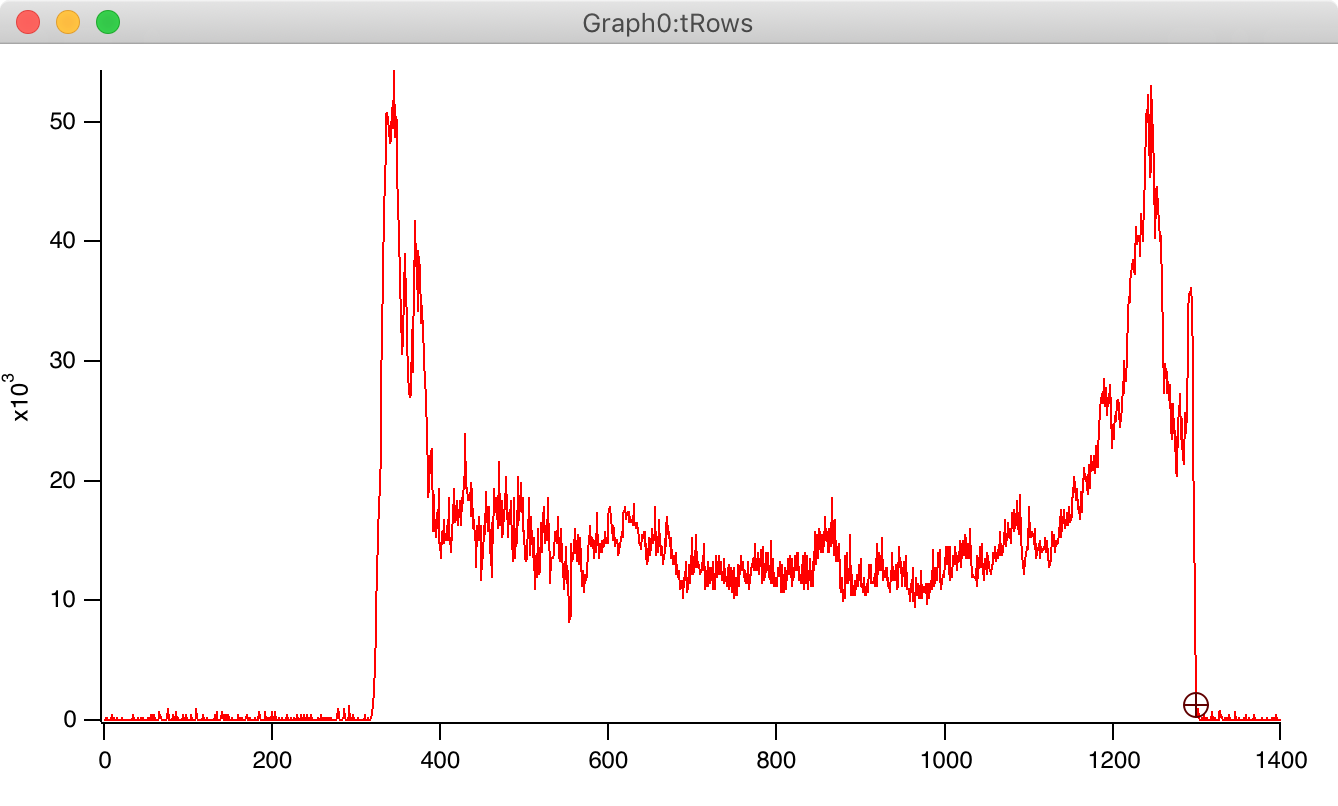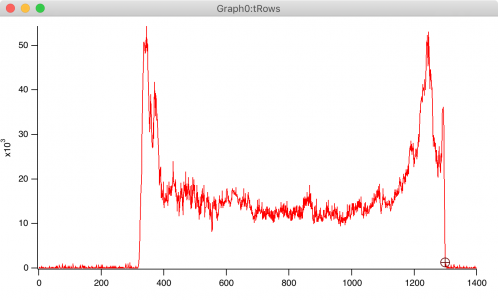
Search for rising edge going backward in wave?

jjweimer
I have a wave that appears as below.

I want to find the width of the feature. I am using FindLevel going forward for a rising edge to find the first point. In this statement, tRowsmax is defined by WaveStats as the maximum in the wave tRows.
FindLevel/EDGE=1/Q tRows, 0.05*tRowsmax
I thought that I would find the other side with this
FindLevel/EDGE=1/R=[numpnts(tRows)-1,0]/Q tRows, 0.05*tRowsmax
This gives me the same x value as the first search. Instead, I have to do this
FindLevel/EDGE=2/R=[numpnts(tRows)-1,0]/Q tRows, 0.05*tRowsmax
Why does the search for a rising edge going backward in the wave not give me what I might have expected?
Igor Pro 8 on macOS 10.14.6.


Forum

Support

Gallery
Igor Pro 9
Learn More
Igor XOP Toolkit
Learn More
Igor NIDAQ Tools MX
Learn More






Hi,
My guess is that the direction of search does not determine if the feature is rising or falling, but rather it is with reference to point/scaling. My hypothesis is that the algorithm calculates a derivative and that is done on the original incarnation of the wave. In this example it is a falling direction. The search direction just decides if multiple exist which one to return.
Andy
January 20, 2020 at 06:18 am - Permalink
Yes. I figured that later last night. The level crossing is dy/dx is positive (rising) or dy/dx is negative (falling) regardless of the direction that is taken for the search.
January 20, 2020 at 08:30 am - Permalink